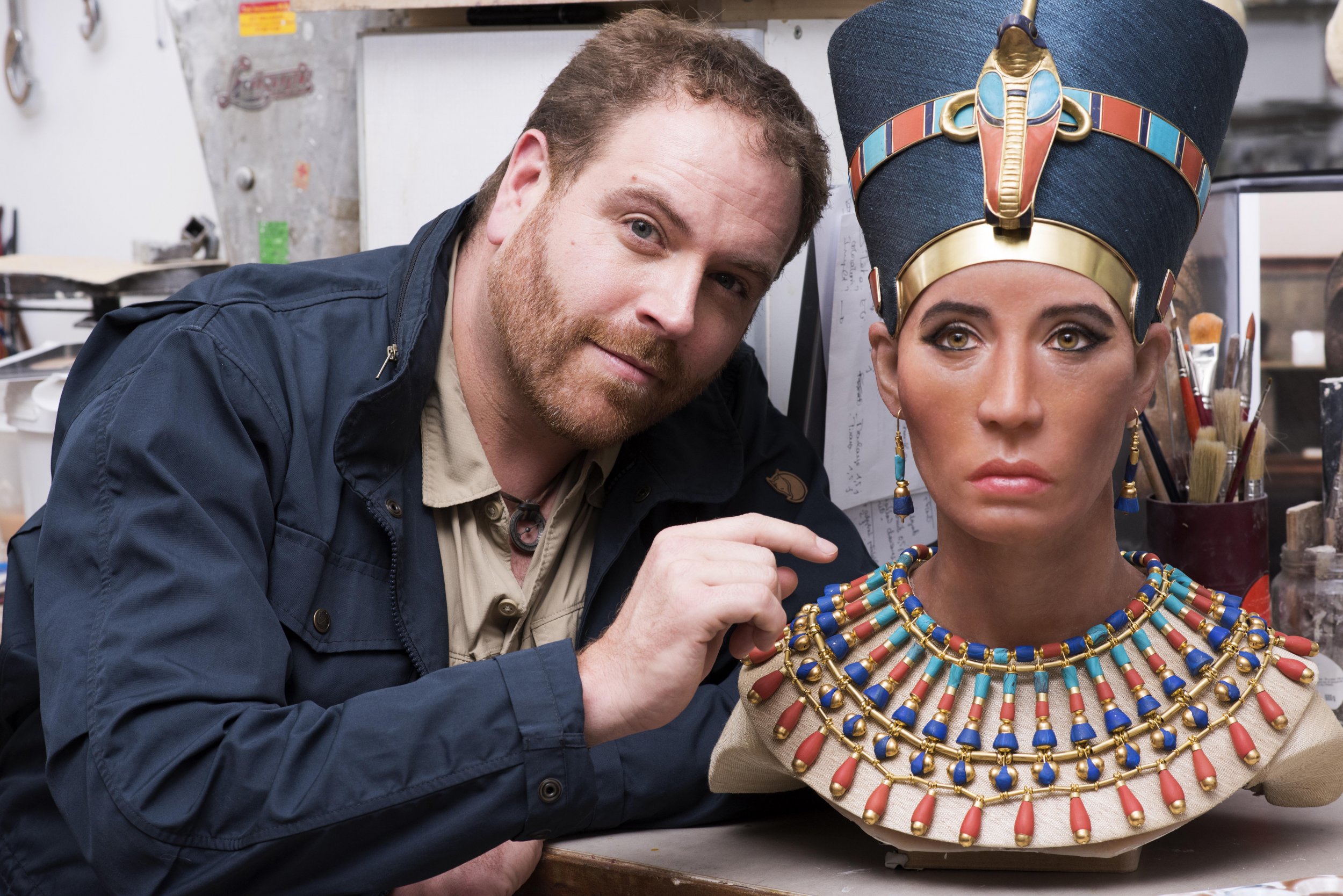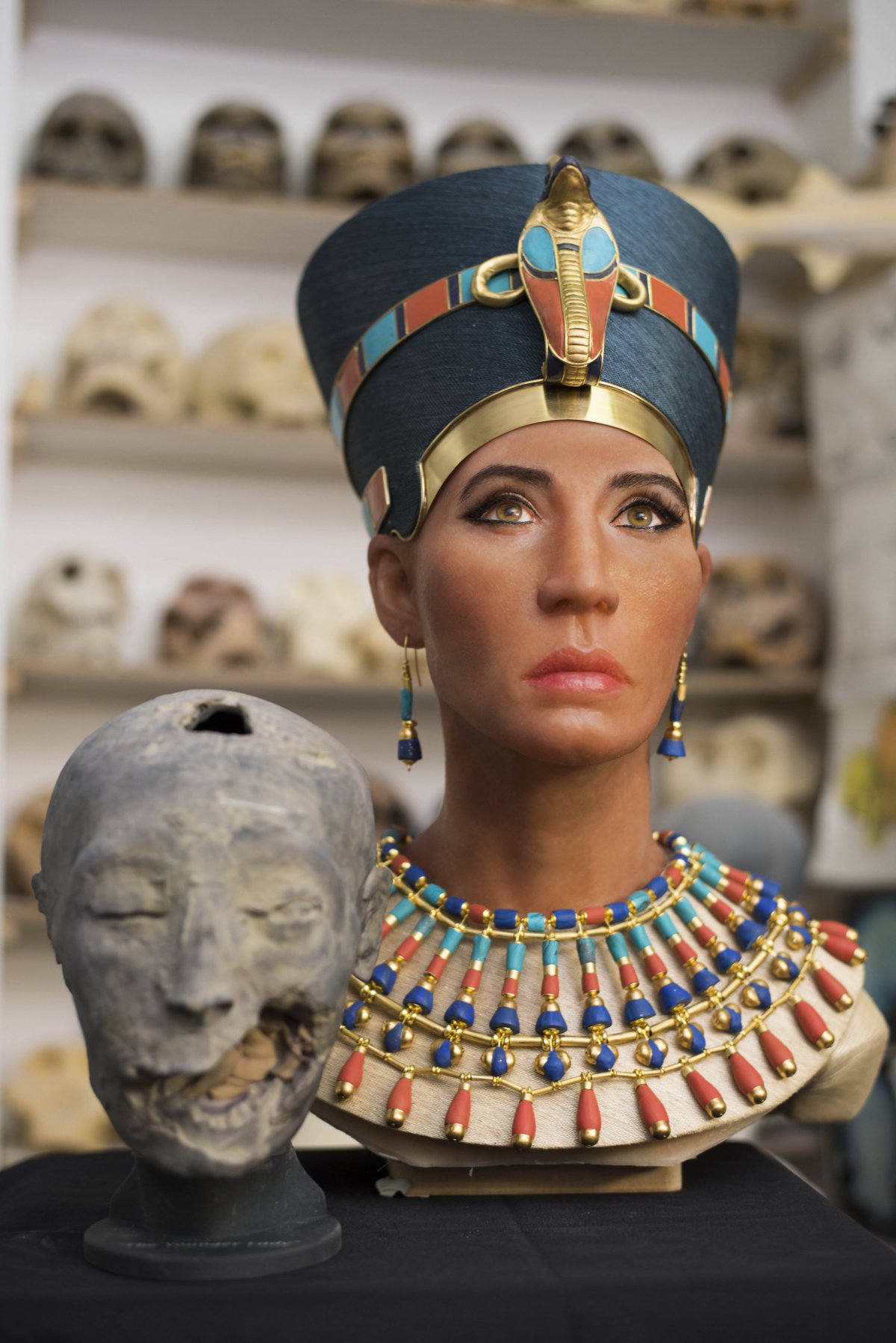
The face of Queen Nefertiti, who may have been King Tutankhamun's biological mother, will be revealed on the Travel Channel's Expedition Unknown, which airs Wednesday night. The face is the result of the latest 3-D imaging technology that used the mummy's facial structure to bring the 3,400-year-old queen to life, but it's the sculpture's skin color, not cheekbones, that has raised the most controversy.
In order to create the bust of the ancient queen, a team of scientists at the University of Bristol in England digitally mapped the face of a mummy known as "The Younger Lady." The mummy was found in 1898 and is believed to be of Queen Nefertiti, but this was never proven. The mummy's face was digitally mapped to make an accurate facial construction for the bust. Then, paleoartist Elisabeth Daynes recreated the Queen's face on the bust, a painstaking process that took around 500 hours of work, a statement on the television show reported. By comparing the bust with historical images of Nefertiti, the researchers were able to show that the "Younger Lady" mummy was indeed the famous queen.
"This remarkable face seems to be consistent with ancient representations of Nefertiti," Aidan Dodson, an Egyptologist at Bristol University who was involved in the project, said in a statement. "It's extraordinary. When taken alongside the latest reading of the genetic data, this provides us with truly exciting evidence that the mummy of the Younger Lady is none other than Queen Nefertiti herself."
The show is focused on investigating three of the most powerful women in ancient Egyptian history: Hatshepsut, Cleopatra and Nefertiti, a statement on the show reported.
Related: Ancient Egyptian Pyramidion Found Next To Largest Obelisk Hints At Existence Of Queen's Lost Chamber
According to The History Channel, Nefertiti was queen from 1353 to 1336 B.C. and may have even ruled Egypt herself after her husband, Pharaoh Akhenaten, died. Her full name, Neferneferuaten, means "beautiful are the beauties of Aten, a beautiful woman has come," an homage to both the Egyptian chief god Aten and the queen's renowned beauty.
The 3-D imaging was only able to copy the mummy's facial structure, other features such as skin and eye color were up to artist interpretation. Many soon took to Twitter in anger over the artist's decision to make Nefertiti so fair-skinned.
Since Nefertiti lived far before the time of photography there is no way to know the exact skin tone of the ancient queen, although the most famous bust depicting the queen, which was believed to be created in 1345 B.C., depicts a darker monarch.
Regardless of the skin tone controversy, the new bust is celebrated for its detail to other aspects of accuracy, such as the depiction of the queen's muscle tone and skin tissue depth. Combined, these details reveal the face of one of the most influential and well known women in world history.

Uncommon Knowledge
Newsweek is committed to challenging conventional wisdom and finding connections in the search for common ground.
Newsweek is committed to challenging conventional wisdom and finding connections in the search for common ground.
About the writer
To read how Newsweek uses AI as a newsroom tool, Click here.








